Skin Cancer
Prevention, screening and treatment
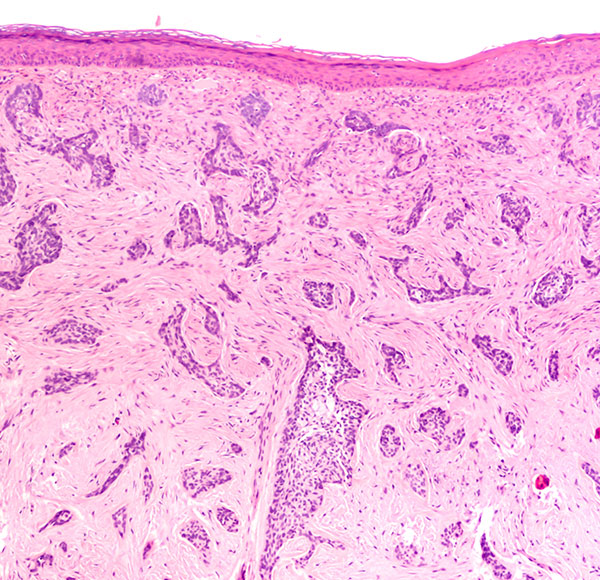
One in five Americans will develop a form of skin cancer during their lifetime
However, many types of skin cancer are highly curable if detected early and treated correctly.
The physicians at Columbia Skin Clinic are determined to help and protect patients with skin exams and state-of-the-art treatment when any issues arise.
Don’t wait to speak with a dermatologist about a cancer screening. Schedule an appointment to get proactive about your health.
Skin Cancer Screening
Wearing sunscreen is not the only protection you need against skin cancer. Getting a yearly cancer screening is critical to early detection, particularly if you have a history of skin cancer, which can prevent the cancer from spreading and even becoming fatal. A skin cancer screening is a visual head to toe exam of the skin performed by your dermatologist. During your screening, a dermatologist will check the skin for moles and other marks that are abnormal in color, shape, size or texture. Be sure to use this time to explain to your doctor if you have noticed any changes in growths or moles and any questions or concerns you may have.
The Screening Process
A skin cancer screening is a simple process that typically takes no longer than 20 minutes unless your doctor notices anything unusual. These screenings should be scheduled once a year, especially for those who are at high-risk for skin cancer. If your doctor sees anything concerning, they will discuss any further steps with you. They may take photos, do a biopsy or schedule a removal.
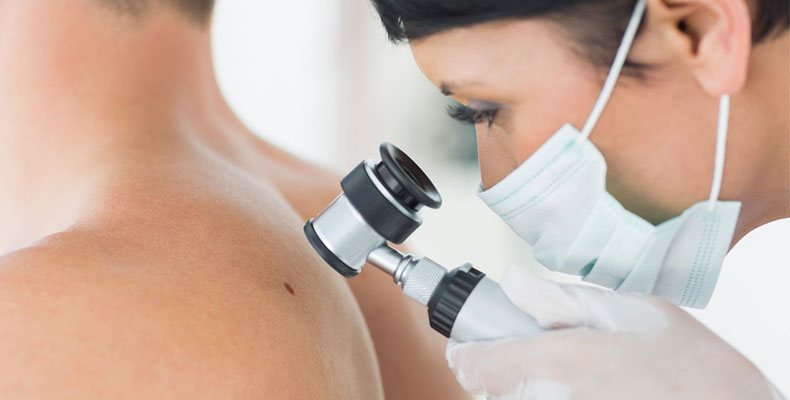
Topical Skin Cancer Treatments
Topical Immunoactivators
Topical Immunoactivators, like Imiquimod, stimulate the immune response of your body to help treat actinic keratoses, warts, basal cell carcinomas and other forms of early skin cancers.
Topical Chemotherapies
While most people think of chemotherapy as an infusion treatment, there are topical chemotherapy creams and ointments, such as 5-fluorouracil, that can be used to treat basal and squamous cell skin cancers.
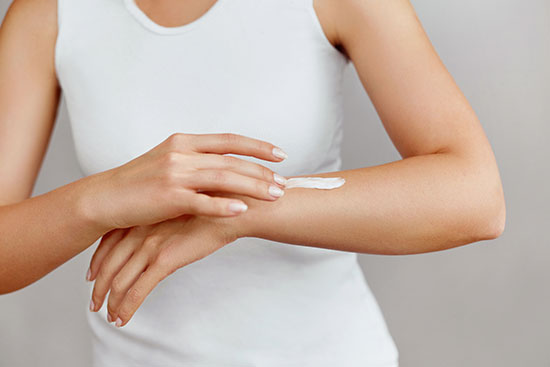
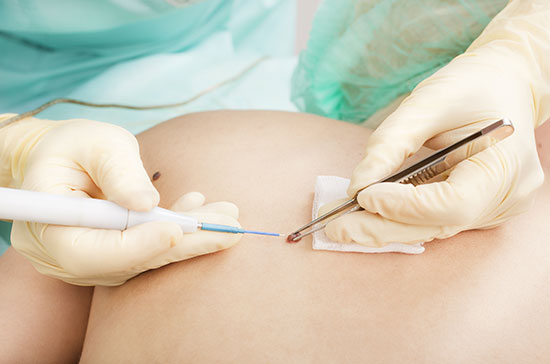
Skin Cancer Removal
Electrodessication & Curettage
Electrodesiccation and curettage is the removal of skin cancer by scraping it with a special instrument. An electrode is then used to destroy any remaining cancer cells below the surface. This is used to treat a variety of skin cancers.
Excision
This treatment involves a local anesthetic, removal of the tumor with margins of normal skin using a surgical knife, and then the wound is stitched closed, typically with two layers of sutures.
Mohs Treatment
While types of skin cancer, treatment methods and prognosis can vary widely, all skin cancer should be treated promptly and seriously. Should you develop skin cancer, there are options for treatment. The physicians at Columbia Skin Clinic will develop the proper plan for your treatment.
Mohs Surgery
Mohs surgery is completed in stages, all in one office visit. Your dermatologist will start by removing a layer of tissue, then examining it under a microscope in an in-house lab. If they detect any cancer cells on the margins of the tissue, the surgeon will know exactly where the cells are located and can remove another layer of tissue from that precise location. The doctor then repeats the process until no cancer cells are detected.
Mohs surgery is the only type of treatment in which the doctor can see exactly where the cancer stops, sparing as much healthy tissue as possible. This can be especially useful for larger skin cancers and on certain parts of the body such as the eyelids, nose, and ears.
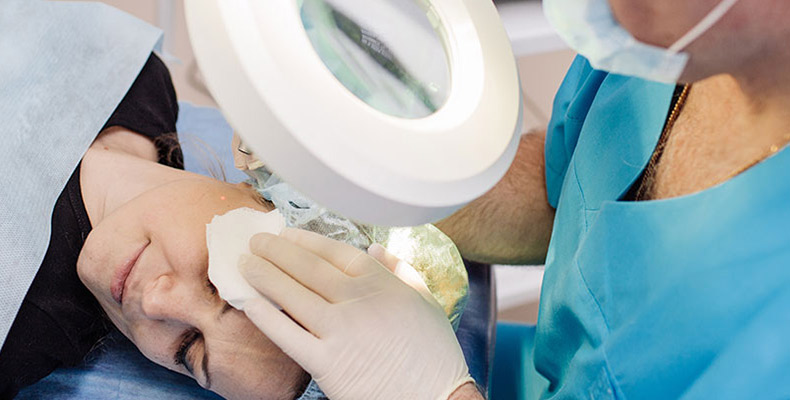
Schedule an Appointment or Consultation
Our dermatologists are here to help!
With four convenient locations in the Midlands, Columbia Skin Clinic has a commitment to delivering excellent dermatology care.



